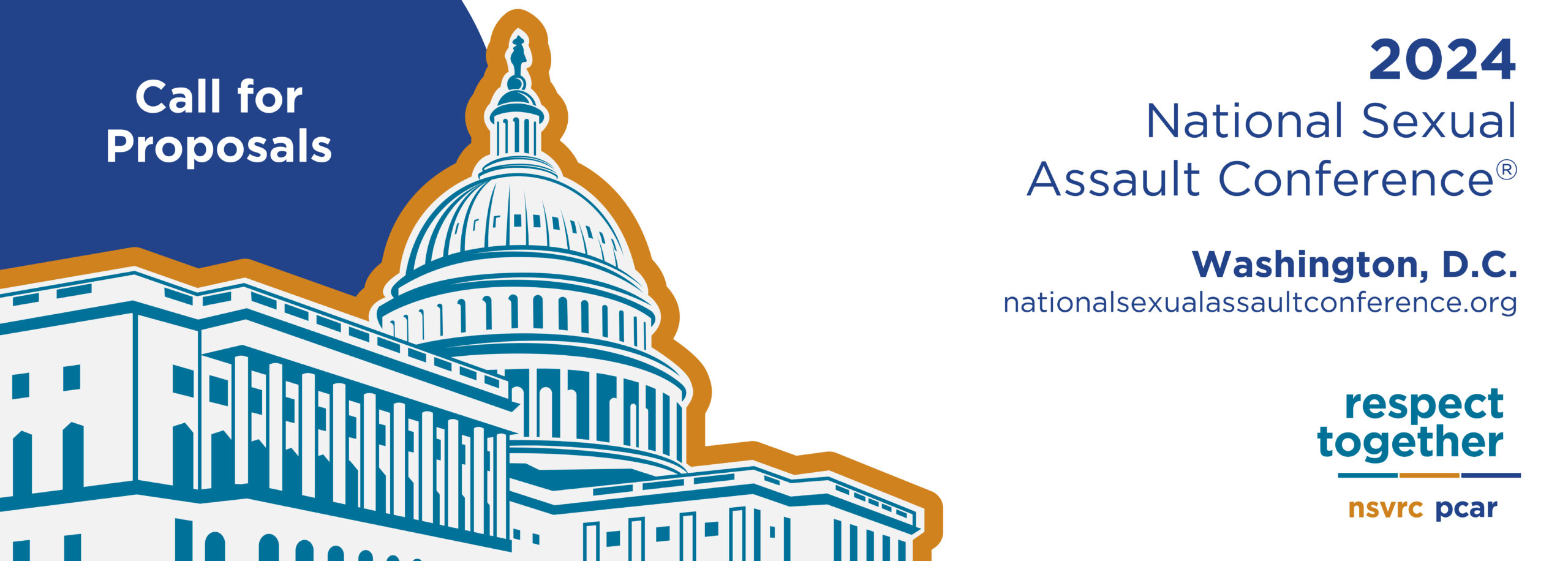
2024 Call for Proposals
Organizations and individuals are invited to respond to this Request for Proposals to lead a session at NSAC 2024.
Timeline
Call for Workshop Proposals
The National Sexual Assault Conference® (NSAC) brings together over 2,000 advocates committed to ending sexual abuse, assault, and harassment. This annual event is filled with opportunities to advance learning, develop skills, share information, build relationships, and increase our capacity to assert the dignity of all people. Together at NSAC, we build strong partnerships and strategies that strengthen our work to end sexual violence.
Respect Together is excited to announce a call for workshop proposals for the 2024 National Sexual Assault Conference®, in Washington, D.C., at the Washington Hilton.
The theme of NSAC 2024 is “United to end sexual abuse, assault, and harassment.” It takes all of us, working together, to create a world in which all people are treated with respect and have full autonomy over their own bodies and sexual expression.
We welcome workshops that will advance the work of the collective movement to end sexual abuse, assault, and harassment. We are seeking proposals that actively include and propel traditionally underserved populations. Proposals that involve interactive learning techniques and innovative methods are encouraged. Topics include:
- Prevention
- Anti-Oppression
- Advocacy & Intervention
- Community Organizing
- Campus
- Children & Youth
- Human Trafficking
- Legal/Public Policy
- Medical/Healthcare
- Outreach
- Wellness/Healing
Criteria
Proposals will be considered based on the following criteria:
Workshop Length
- Each workshop session is 90 minutes in length, so please plan your workshop accordingly.
- Workshops that cover two (2), 90 minute sessions will also be considered.
Audience
The National Sexual Assault Conference® attracts a wide variety of people committed to addressing and preventing sexual abuse, assault, and harassment including:
Proposal Submission Process
To fill-out the proposal submission form in English & Spanish: Click here.
Submissions must be received by 8 p.m. Eastern Standard Time on Monday, January 8, 2024. Applicants will receive notice by February 16, 2024. For each workshop session, only one (1) presenter will receive one (1) free conference registration and one (1) night’s lodging at the federal government rate if the presenter’s office is more than 50 miles from the conference site (per government guidelines). If the workshop has multiple presenters, then they must select one individual to receive the one (1) free conference registration and one (1) night’s lodging, as permitted. Respect Together will not reimburse for any other expenses incurred by the selected presenter(s) for each workshop. Scholarship opportunities are available to those who may need travel assistance. For more information, email nsac@respecttogether.org
Proposal Checklist: Before submitting your completed proposal, please make sure that you have all of the requested information/material prepared below. Also, please keep a copy of the below information for your personal records.
o Title of proposed workshop
o Length of workshop (1.5 hrs. or 3 hrs.)
o Presenters’ names and contact information (a maximum of three co-presenters)
o Workshop abstract (50 word maximum) o Workshop Objectives (a minimum of three quantitative objectives)
o Audio/Video/Technical needs
o Presenter’s Biography (50 word maximum)


